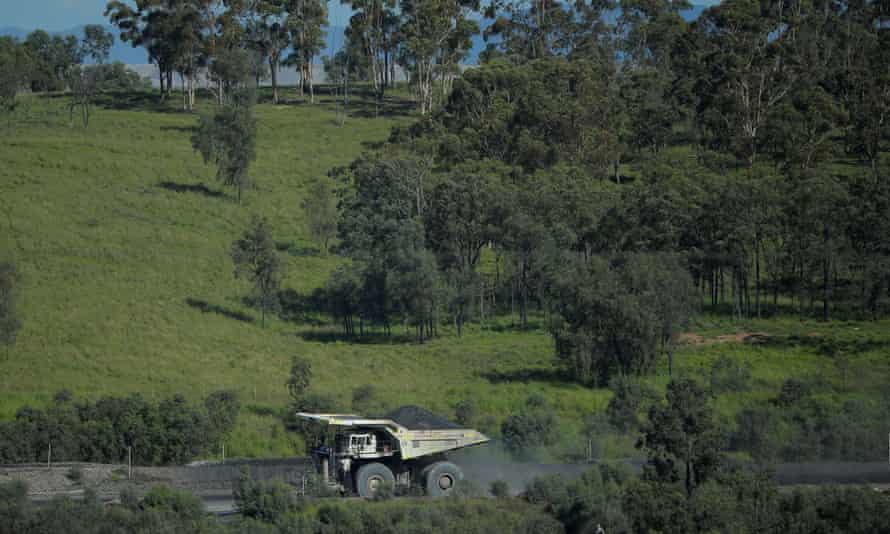Extract from The Guardian
Kerry Schott says private sector won’t back ‘expensive power’ when there are cheaper alternatives such as renewables and batteries.

Last modified on Fri 30 Apr 2021 03.33 AEST
The chair of Australia’s Energy Security Board says a taxpayer-funded gas-fired power plant in the Hunter Valley makes little commercial sense given the abundance of cheaper alternatives flooding the market.
The Morrison government is continuing to hold out the prospect of Snowy Hydro building a new plant at Kurri Kurri to replace the power generation gap created by the exit of the ageing Liddell coal-fired plant.
But the ESB chair, Kerry Schott, told Guardian Australia putting more gas into the energy market to support renewables was questionable when gas was “expensive power”.
“One of the reasons given for [a taxpayer-funded plant in the Hunter] is it will flood the market with gas-fired power and when there’s a tonne of supply in the market, prices go down,” Schott said.
“We all learned this in economics. However, that doesn’t work when there are a whole lot of other things around that are cheaper in price, like wind, solar and big batteries, like pumped hydro and we’ve got Snowy 2.0 coming.
“Nobody is going to build it from the private sector because it doesn’t stack up. Because it’s expensive power, it’s hard to see it makes commercial sense.”
Schott was speaking ahead of the release on Friday of options to reform the energy market.
The Energy Security Board has flagged more transparency around the exit of coal plants as well as a beefed-up reliability obligation imposed on retailers. Some renewable energy interests fear a more onerous reliability obligation will lead to coal plants remaining in the system longer.
The Coalition has suggested since last year that taxpayers could fund a new gas plant in the Hunter if private companies fail to supply alternatives.
The prime minister, Scott Morrison, and the energy minister, Angus Taylor, have imposed a deadline of 30 April for privately funded alternatives to be brought forward.
Energy Australia has proposed a gas peaking station with a nominal capacity of up to 450MW and could proceed with that development. A spokesperson for Taylor said the government may also proceed with the Snowy proposal which had already secured “critical NSW state significant infrastructure status for their proposed Kurri Kurri gas generator”.
As well as Schott’s scepticism, a taskforce advising governments about the impact of the Liddell closure did not back Morrison and Taylor’s insistence that 1,000MW of additional dispatchable electricity would be needed to replace the old coal plant.
The taskforce listed a range of committed and probable projects that it found would be “more than sufficient” to maintain a high level of power grid reliability as Liddell shut.
The ESB’s consultation paper on Friday will float proposed reforms to energy market rules including a more substantial reliability obligation on retailers. It is being pushed by some governments but is controversial in the energy sector.
Schott said governments pursuing the proposal wanted “a bit more certainty in their world” during the transition to low emissions. She said her own view was it could “help” create more order in the transition “but it’s arguable that this is the long term investment signal that we need”.
While there is concern that a more onerous reliability obligation could provide an incentive to keep coal plants operating for longer, Schott was blunt about the prospects for coal-fired generation.
“Coal companies are going broke and they are likely to retire before their technical lives end,” the ESB chair said. Schott said given the economics of energy generation, it was now likely coal plants in Australia would be shuttered four or five years earlier than expected only a couple of years ago.
She said if governments ultimately created a reliability obligation that required retailers to buy advance contracts to fill supply gaps, and trade in physical certificates, that wouldn’t be enough to bake coal into the system.
“As well as a certificate market there is also an energy market and you don’t get dispatched if you are more expensive than wind and solar matched with pumped hydro and batteries increasingly, and a bit of gas,” Schott said.
She said additional regulation aimed at keeping the lights on during the transition would not impact the coal retirement trajectory significantly because “commercial viability” was driving the change.
“If you are a wind farm and you are trying to firm your load and it’s cheaper to do it with big batteries or a bit of gas or pumped hydro, that’s what you are going to do”.
Schott said what was required to ensure the transition happened in an orderly way was collaboration between levels of government, but that wasn’t happening.
She said the chaos following the collapse of the national energy guarantee had demonstrated there was no way of stopping governments “interfering” in the energy market “but it would be good if they tell their neighbours what they are about to do because [the decisions] affect one another”.
Schott said having a national policy mechanism to guide the transition would be optimal, but now the die appeared to be cast in favour of governments intervening and underwriting new investments.
She said state governments were currently “pulling an enormous amount of weight to make sure that we muddle through” but the transition was “messy and it would be far better if we had a national target and we could all sit down and work together”.
The new proposals from the ESB come as Australian company directors rated climate change the number one priority for the federal government. The Australian Institute of Company Directors will on Friday call on the government to introduce five-year emissions reduction targets.
No comments:
Post a Comment